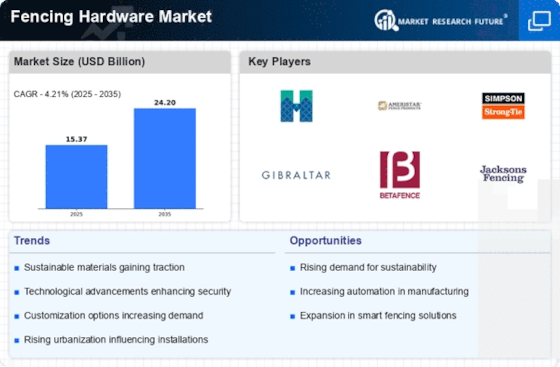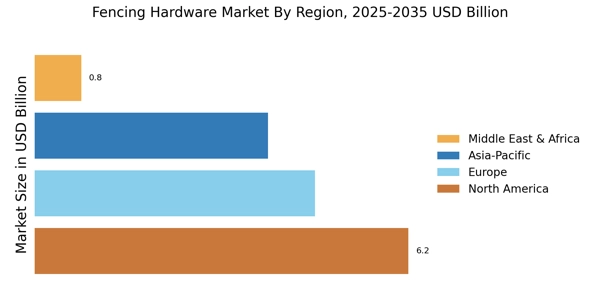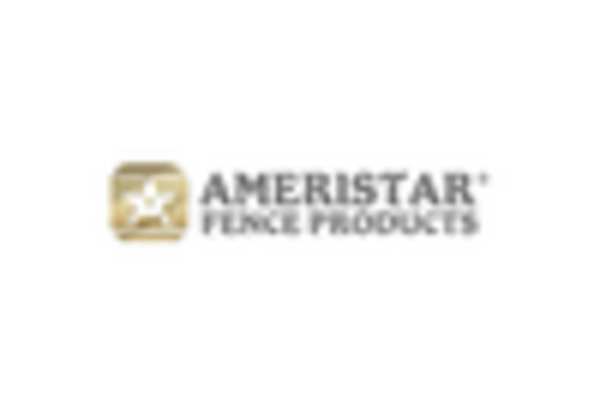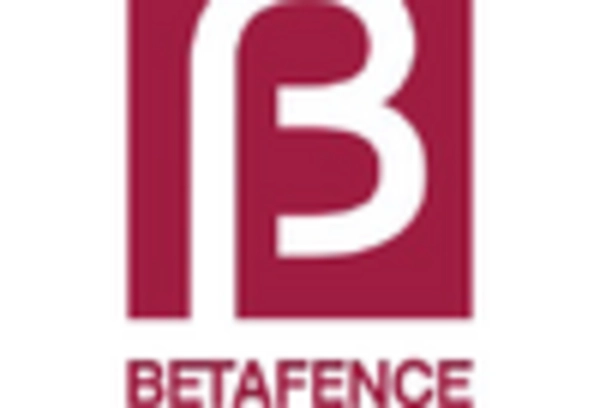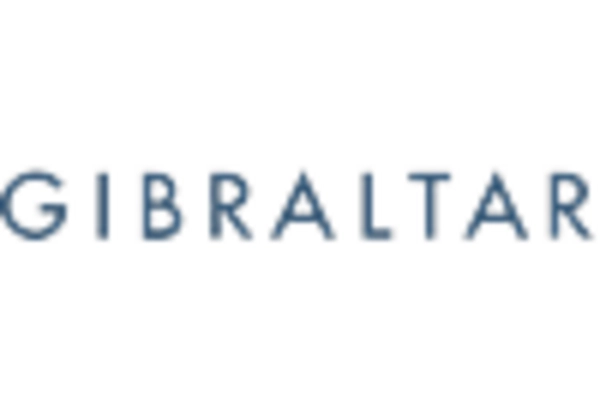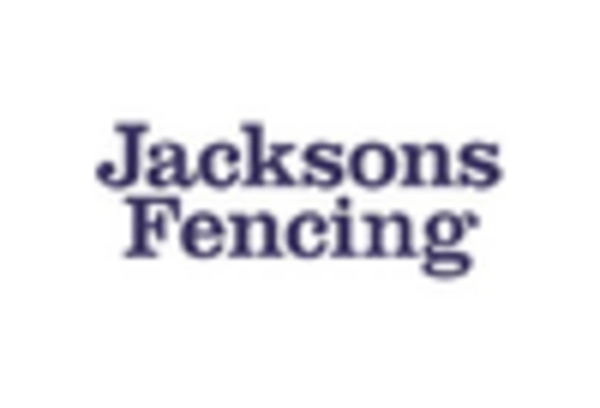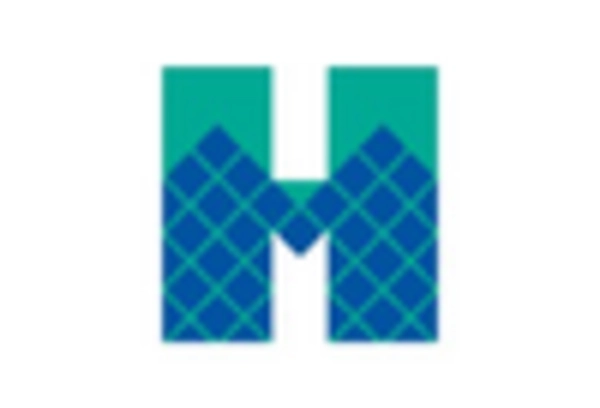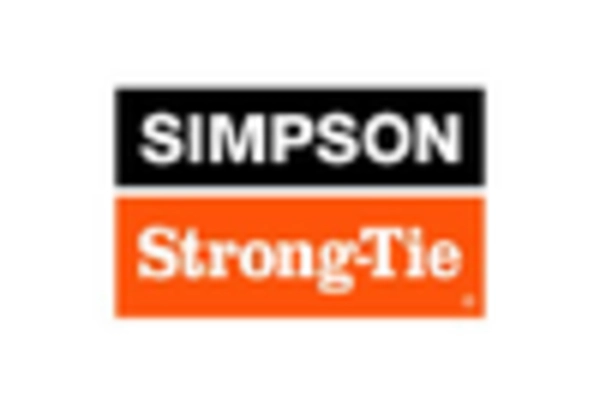Regulatory Standards and Compliance
The Fencing Hardware Market is increasingly influenced by regulatory standards and compliance requirements. Governments and local authorities are implementing stringent regulations regarding safety and security, particularly in public spaces and commercial properties. These regulations often mandate the use of specific types of fencing materials and hardware to ensure safety and durability. As a result, manufacturers are compelled to innovate and adapt their products to meet these standards. Market data suggests that compliance-driven demand could lead to a 6% increase in the adoption of certified fencing hardware over the next few years, as businesses and property owners prioritize adherence to safety regulations.
Rising Demand for Security Solutions
The increasing emphasis on security across residential, commercial, and industrial sectors appears to be a primary driver for the Fencing Hardware Market. As crime rates fluctuate, property owners are investing in robust fencing solutions to enhance safety. This trend is reflected in the market data, which indicates a projected growth rate of approximately 5.2% annually over the next five years. The demand for high-quality fencing hardware, including locks, hinges, and brackets, is likely to rise as consumers seek reliable security measures. Furthermore, the integration of advanced locking mechanisms and surveillance systems into fencing solutions may further bolster this market segment, suggesting a shift towards more sophisticated security hardware.
Sustainability and Eco-Friendly Practices
Sustainability is emerging as a crucial driver in the Fencing Hardware Market, as consumers and businesses alike prioritize eco-friendly practices. The demand for sustainable materials, such as recycled metals and sustainably sourced wood, is on the rise. This shift is not only a response to environmental concerns but also aligns with broader trends in construction and manufacturing. Market data indicates that the eco-friendly fencing segment is projected to grow by 5.5% annually, as more consumers seek products that reflect their values. Manufacturers are increasingly adopting sustainable practices in their production processes, which may enhance their competitive edge in the market.
Urbanization and Infrastructure Development
Urbanization continues to accelerate, leading to increased infrastructure development, which significantly impacts the Fencing Hardware Market. As cities expand, the need for effective boundary demarcation and security in urban areas becomes paramount. The construction of new residential complexes, commercial buildings, and public spaces necessitates the installation of fencing solutions. Market data indicates that the construction sector is expected to grow by 4.5% annually, driving demand for fencing hardware. This growth is likely to be accompanied by a rise in the adoption of durable and aesthetically pleasing fencing materials, as urban planners and architects prioritize both functionality and design in their projects.
Technological Advancements in Fencing Solutions
Technological advancements are reshaping the Fencing Hardware Market, introducing innovative solutions that enhance functionality and user experience. The integration of smart technology, such as automated gates and remote monitoring systems, is becoming increasingly prevalent. These advancements not only improve security but also offer convenience to users. Market data indicates that the segment of smart fencing solutions is expected to grow by 7% annually, reflecting a shift in consumer preferences towards high-tech options. As manufacturers invest in research and development, the introduction of new materials and technologies may further drive market growth, suggesting a dynamic evolution in fencing hardware.


